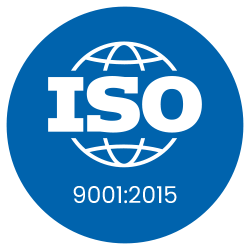As times are changing, the best we can do is adapt. As employees, we adapted to work from home, with all its perks and negative sides as well. But how do employers adapt to not seeing their workers …work? How do they cope with not being able to monitor their progress, having meetings every once in a while, noticing the frequency of breaks, and other aspects that can only be observed in the office? Well, actually, they can monitor their employees through digital tools and find out everything they want to know. But is it okay? To answer this, I compiled a list of pros and cons in monitoring remote employees, and from there, each can draw their own conclusions.
PROS OF MONITORING REMOTE EMPLOYEES
Limit the distractions
When using monitoring software, the employer can see when employees are doing activities unrelated to their work. They can change this behavior by limiting access to specific distracting sites or advising employees not to use them frequently. This is a great benefit of digital monitoring as it can increase productivity by noticing the harmful practices and eliminating them.

Reveal time spent on tasks
Monitoring remote employees doesn’t only mean invading privacy but also figuring out how much time is spent on certain tasks. If a superior discovers that somebody is having issues with a task, they can offer guidance about how it should be done or extra explanations. Maybe that employee is unfit for the task and can be redirected to something more suitable that they are good at.
Better prioritization of tasks
As monitoring remote employees has been implemented in a business, the employer has a clear vision of where time and resources go. This will give an idea of what tasks should be prioritized, how much time should be spent on each assignment, and how much effort should be put into tasks of different priorities.

Prevent unauthorized access
Employee monitoring could be of help in tightening up security when noticing who accesses what. Good monitoring software can detect when a user accesses data they’re not supposed to, either maliciously or by accident. Investigating potential breaches and suspicious behavior is great as employers can shield their sensitive data against possible threats.
CONS OF MONITORING REMOTE EMPLOYEES
Lack of trust and confidence
Employee monitoring could as well bring some unwanted repercussions. It depends on the employer if they are willing to accept and go ahead with the consequences. The employer/employee relationship could be put into danger when the monitoring policy will take effect. Especially if the action begins after an employee was hired or for employers known for doing hard work and always being on time. It depends a lot on the culture of the workplace, but not having trust and confidence in your employers could negatively impact their feelings.
Decreased productivity
Not many people work well knowing they are being supervised, and monitoring could put negative pressure on employees. Feeling watched with every move they make might decrease productivity by bringing unwanted stress. This could reflect in their work, and it’s a total slowdown for the company.

Invasion of privacy
There’s a fine line between performance monitoring and invasion of privacy. How do you know when to draw that line? Before making this decision, put yourself in their shoes and think how you would feel not knowing how much your employer gets to see. Then, of course, there is the legal part involved as well. There are laws dating back as far as 1986 that forbid the interference of communication or accessing stored communications in an authorized way. The exceptions are phone calls and e-mails, but monitoring usually requires the employees’ consent.
False expectations
The first impression of inactivity is a negative one. But let’s not forget that remote employees are humans and obviously don’t operate like robots. Monitoring every move they make might lead managers to be more demanding of their employees. Taking breaks is normal, either for a quick stretch, a cigarette and a coffee, a snack, or just to put their tasks in order and figure out what to do next. These moments of inactivity might not have been normally noticed in the office, but when working from home, they might not be appreciated, even more so, considered to be laziness.

Costs go up
When choosing to implement an employee monitoring software, there are certain costs involved. The superior must make an investment in the necessary technology required for monitoring. And also, who will watch the data? A person might need to be hired in order to look at all the information collected.
Every company is unique, and so are managers. Some have a total sense of trust in their employees, work well together, and communicate effectively. On the other hand, some feel they need to monitor their workers closely due to bad management or unwanted behavior and events in the past. The path an employer chooses to walk on depends only on them. Are they willing to get beyond the negative aspects, or are they more concerned with the trust issues that might arise? My advice is to put into balance all the points of view and make the best decision for their workplace, themselves, and their employees.






